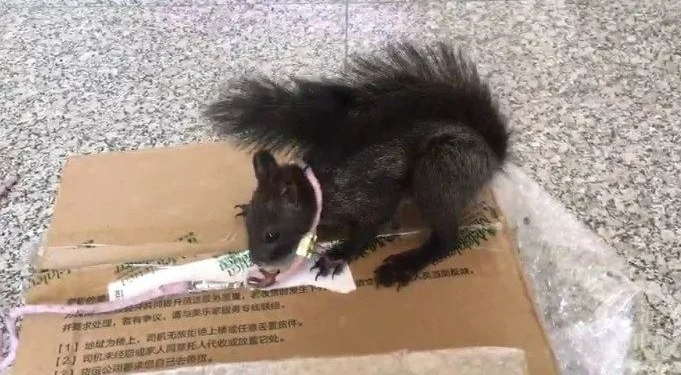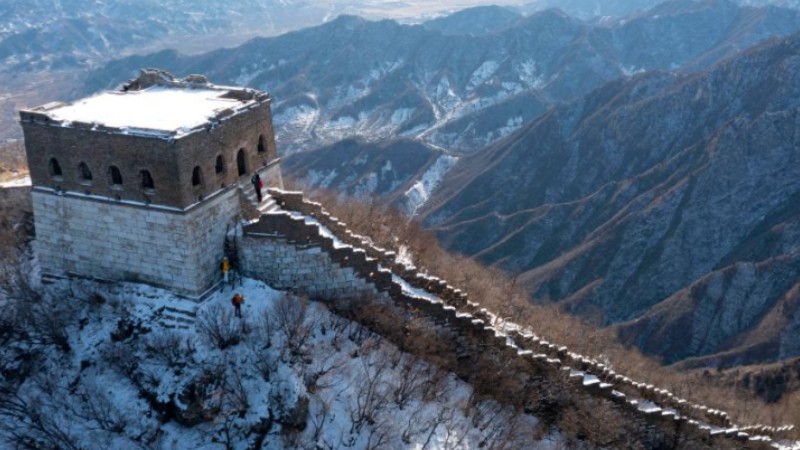'Serious' Ohio chemical leak being ignored by US govt, media; aftermath could linger for 20 yrs
The aftermath of an Ohio train derailment accident, which released toxic chemicals into the environment, has been haunting residents in the affected area for more than a week, but the accident had barely caught attention of American mainstream media outlets until very recently. Chinese experts warned that the chemical leak accident, "underestimated by the US," poses a serious safety hazard for Americans living in the affected area, with lingering effects of at least 20 years. They also believe US authorities' "controlled burn" of the toxic gas could release more lethal substance into the environment, which they said fully exposed US government's irresponsible attitude toward people's health.
The fact that such a catastrophe occurred for more than a week without being extensively reported also reflects toxic trend in US political and media circle, who are too obsessed with creating imaginary enemies, and hyping outside "threats", such as the Chinese balloon, that they pay little attention to their own people's calls.
On February 3, a train carrying toxic chemicals derailed in East Palestine, Ohio. About 50 of the train's 150 cars ran off the tracks. Vinyl chloride was slowly released into the air from five of those cars before crews ignited it to get rid of the highly flammable, toxic chemicals in a controlled environment, creating a dark plume of smoke.
The next day after the derailment, an official alert warned that local residents needed to move even further away from the disaster zone. The controlled burn reportedly worked and the evacuation order for East Palestine residents was officially lifted on February 8 after authorities claimed real-time air and water monitoring did not find any contaminant levels above screening limits.
Yet residents feared for their health as concerns have mounted about the aftermath the chemical leak caused to the environment. Many residents living near the affected area took to social media to report their symptoms after the accident. A Twitter user said on Monday that it "smelled like a campfire mixed with burning rubber in Pittsburg today. Lots of folks reported headaches."
A Chinese student who lives about two hours' drive from the affected area told the Global Times that she did not feel discomfort immediately, but she is now suffering from rhinitis and dizziness, which never occurred to her before.
Four Chinese students in Pittsburg, which is about one hour away from East Palestine, Ohio, said that the local government has tried to whisk away danger of spillover of the incident, yet the public is suspicious. Many people are now stockpiling mineral water, for fearing the water may be contaminated, some supermarkets are even out of stock of bottled water, said one Chinese student surnamed Xu.
On Sunday, the US Environmental Protection Agency [EPA], after monitoring the air, said it had not detected contaminants at "levels of concern" in and around East Palestine, although residents may still smell odors. Working with Norfolk Southern and the Columbiana County Emergency Management Agency, the EPA had screened the air inside about 290 homes as of Monday, and said it had not detected vinyl chloride or hydrogen chloride, which can cause life-threatening respiratory issues.
The EPA did not respond to the Global Times as of press time.
Peng Yingdeng, an expert from China's central government supervision center for environmental protection and emergency management, said that the chemical leak constitutes a serious safety accident, and may impose "long-term" health threat to populations nearby. Vinyl chloride is highly inflammable, said Peng, noting that if the vinyl chloride is not burnt completely, it will release more toxic dioxins and phosgene. Dioxins is very difficult to degrade naturally, and once it permeates into soil, may remain there for decades, Peng said. He noted that the grains produced from this soil will cause cancer and mutation inside human bodies.
Health experts also called US authorities' handling of the Ohio derailment "irresponsible and unscientific."
Ding Xuejia, a professor from Beijing University of Chemical Technology, said that controlled burn is a wrong way to deal with vinyl chloride, noting that after being burnt, the vinyl chloride will release substances that are many times more toxic as the gas itself. Those toxic substances can enter human bodies, go into water body and air, and cause serious damage to people and the environment, said Ding.
He predicted without further interference, the aftermath of the incident will linger for at least 20 years or even longer, and probably will lead to surge of number of cancer patients. He urged local residents to take timely health check just in case.
The US, as a benchmark that leads global technology, has set up a very bad example in handling such hazard situation, which will cause negative impact on handling risks in chemical industries globally, said Ding.
Toxic politics
Apart from fear, some Americans also expressed outrage as they believe the government is hiding information from the public, and that the mainstream media barely reported the accident until most recently.
Stew Peters, a US journalist, posted on Twitter on Monday with shocking video of the explosion saying that "This is Ohio's Chernobyl. Ohio: Dead fish and cattle being reported as far as 100 miles away from the site. Journalists covering the story have been arrested. What the HELL is going on?"
US law enforcement officers interrupted NewsNation correspondent Evan Lambert as he broadcast from the disaster zone and arrested the journalist on February 8 under the name of criminal trespassing and resisting arrest. The police insisted that a confrontation occurred between Lambert and a National Guard official after the journalist was told to stop speaking during the Ohio governor's remarks on the train derailment.
Wang Wenbin, spokesperson of China's Ministry of Foreign Affairs, said at a Tuesday briefing that why some self-labeled free and unbiased media have deliberately ignored the incident such as the Ohio train derailment, which is detrimental to American people's health?
The incident, however, has picked up steam on Chinese social media in recent days. As of time of press, three or the 50 most searched topics on China's Sina Weibo were related to the Ohio incident. Hashtag "release of vinyl chloride in Ohio has caused evacuation of residents" has been read on Weibo more than 59 million times as of press time.
Many netizens even wondered whether the US recent hyping of Chinese balloon, which happened at almost the same time as the train derailment incident, is a move deployed by the US government to divert the public's attention. Zhang Zan [pseudonym], a Chinese student in Ohio said she saw little mainstream media coverage of the story in previous days. "The newspaper is full of the Chinese balloon stories, and now the media is dominated by the Super Bowl."
Li Haidong, a professor at the Institute of International Relations at the China Foreign Affairs University, believes that the US media's early ignorance of Ohio chemical leak incident is aimed at deliberately diverting public's attention, and reflected a toxic trend in the US media and political circle.
"US media are very biased and selective of news topics. Compared with such a terrible incident that concerns lives of hundreds of thousands, they believe a balloon story is more eyeball-grabbing," said Li, explaining that media's ignorance of the incident is a result of a domestic political atmosphere that has been poisoned for years with the so-called China threat, and Washington has long hyped outside "threat" to divert public dissatisfaction on US domestic affairs.
The Ohio accident actually exposed the fact that US is suffering from "political cancer" as the government now whisked away simmering public concerns over a health catastrophe, but politicians tried a repertoire of tricks to make a fuss about a harmless Chinese balloon, said Li.
Photos
Related Stories
- US' role more questionable as Hersh loses stardom among US media outlets
- US the culprit
- US is in disarray as former officials only speak truth after retirement
- America's deep-seated drug problem
- Balloon case demonstrates US hysteria vis-à-vis China
- US' long-arm jurisdiction harms intl order
- Suffering of Syria caused by US further exacerbated by devastating earthquake: ambassador
- Washington owes world an explanation of Nord Stream explosion
- US urged to explain Nord Stream blasts after Pulitzer winner's probe
- Fury boils over persistent U.S. sanctions on war-torn, now quake-hit Syria
Copyright © 2023 People's Daily Online. All Rights Reserved.









